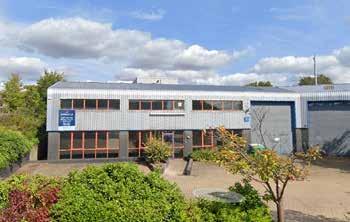
3 minute read
NMC and MCIA press government on licences
The Motor Cycle Industry Association (MCIA) and the National Motorcyclists Council (NMC) have both given their take on the European Union’s latest road safety package. The new EU policy (which doesn’t affect the UK post-Brexit) covers areas including hazard perception, digital licences, minor changes to licence categories, advanced vehicle technologies and the impact of driving style on emissions.
However, there is nothing from the EU on any changes to L-Category licences, and the MCIA wants the UK government to step into that gap, updating rules for British riders.
Karen Cole, director of safety and training at the MCIA said, “Although not applicable to the UK, the package’s omission of L-Category licensing proposals has a strategic benefit for MCIA and is something we’ll be looking to leverage in discussions with UK government officials.
“The all too familiar omission of L-Category proposals by the EU sets an advantageous precedent the UK government should ignore and contradict, doubling down on its wanting to be seen as leader and trailblazer, not only in how it gets to net zero, but in road safety too. This is particularly relevant given its commitment to the PLV Action Plan and the acknowledgment that we can reach net zero quicker if we unleash the full potential of our vehicles. This means simplifying and improving access to our vehicles, not at the expense of road safety, but the improvement of it.”
The NMC takes a different line, pointing out that the EU road safety package doesn’t mention motorbikes at all in relation to road safety, focusing instead on e-bikes, e-scooters, cyclists and pedestrians. It quotes NMC partner FEMA’s (Federation of European Motorcyclists’ Associations) general secretary who said, “With respect to driving licences for motorcyclists, there are no changes. It shows that the European Commission has done nothing with our comments and recommendations during the years that we have discussed this. This is a very disappointing conclusion.”
Like the MCIA, the NMC claims that there are opportunities for advances that would improve motorcycle safety. NMC executive director Craig CareyClinch said: “The NMC is in active discussion with the Department for Transport and its agencies on a range of measures that will make a real difference to safety. Fundamental to this is the recognition of motorcycling as a positive component in current and future transport policies, as this will unlock safety investment both nationally and locally which can be targeted on rider friendly road infrastructure, education of all road users and positive measures for mobility by those who chose to ride. The UK is also in a position to revise training and testing regulations so that high standards can be linked to an updated regime which is easier for novice riders to understand and easier to access.
“The government’s new Motorcycle Strategic Focus Group is a very positive first step towards creating better overall transport and road safety policies and we will be urging the group to consider where the UK can become world leaders in creating proactive policies towards motorcycle use and safety.”
Lings Group set to open new Norwich showroom

THE WELL-KNOWN AND LONGestablished dealer Lings Motor Group (LMG), which has five showrooms across East Anglia, has submitted a planning application to Norwich City Council to open a new motorcycle showroom. The site on Hall Road to the south of the city will also sell e-bikes and bicycles.
The 482m2 site has been empty since its previous owner, design agency GGS, vacated the premises in October 2020.
LMG currently holds motorcycle franchises for GasGas, Husqvarna, Honda and Triumph across stores in Lowestoft, Watton, Great Dunmow, Ipswich and Harleston.
PFK Ling, latterly Lings Motor Group, began more than 150 years ago as a family blacksmith. Within a few decades, it had grown from a bicycle dealership in Bungay to motorcycle dealerships at Harleston and later Lowestoft, stocking typical British bikes from Norton to BSA. What would prove to be inspired, but was at the time risky, was the decision to partner with a littleknown Japanese manufacturer in the early 1960s. At the time, Honda was struggling to establish a foothold Europe with its stepthrough lightweights far removed from the powerful, heavier machines typical of British manufacturers.
The then directors, David and Anne Jary, saw a gap in the market, and Lings went on to










